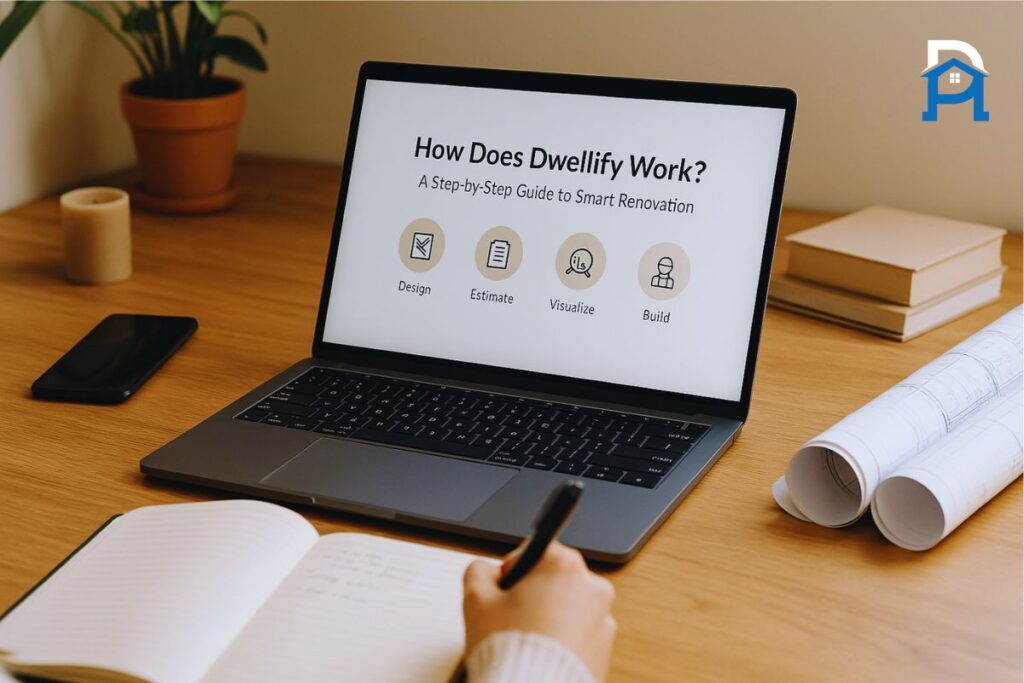So you’re thinking about starting a renovation business? Good call. The home improvement industry is booming, and people are always looking to upgrade kitchens, bathrooms, and entire houses. Here’s the thing—while the demand is strong, success doesn’t come from just picking up a hammer and calling yourself a contractor. It takes planning, strategy, and some smart moves to build a profitable business.
In this guide, I’ll walk you through everything step-by-step—from understanding the market to building your team, getting clients, and scaling. I’ll also share personal-style tips, expert insights, and a few real-world examples. By the end, you’ll know exactly how to start a renovation business and what it takes to keep it running strong.
How to Start a Renovation Business:
Starting a renovation business means creating a plan, handling licenses, budgeting tools, finding clients, and delivering quality home upgrades that build profit and reputation over time.Mission Statement
Our mission is to help aspiring entrepreneurs start and grow profitable renovation businesses by providing practical guidance, proven strategies, and trustworthy resources that empower them to turn skills into lasting success.
Steps to Start a Renovation Business:
- Research your local renovation market.
- Write a simple business plan.
- Register legally & get licenses.
- Secure tools, suppliers, and insurance.
- Market your services (website, local SEO).
- Start with small projects, collect referrals.
- Track finances & scale slowly.
Step 1: Understand the Renovation Business Landscape
Before you spend a single dollar, get clear on what kind of renovation business you want. The market is big—kitchen remodeling, bathroom upgrades, general repairs, even eco-friendly green renovations.
- Kitchen & Bath: The most in-demand areas. Families spend big here because these spaces directly boost home value.
- Full-Home Renovations: Larger projects, bigger profits—but also bigger risks.
- Specialized Services: Things like basement finishing, flooring, or exterior siding. Niche players often get higher margins because they become the go-to expert.
Is a renovation business profitable? Absolutely. Industry data shows many small remodeling businesses run on margins between 10–25%, depending on size and efficiency. The best part is, demand stays steady even during economic dips because homeowners prefer upgrading instead of moving.
Step 2: Estimate Startup Costs & Budget Planning
Here’s a question I hear a lot: “How much does it cost to start a remodeling business?”
The short answer: it depends on your location, services, and whether you’re starting solo or building a team. But let’s break it down:
- Licenses & Permits: $500–$2,000 depending on your city.
- Insurance: $1,000–$3,000 annually.
- Tools & Equipment: Can range from $2,000 for basics to $20,000+ if you’re buying heavy machinery.
- Marketing & Website: Around $1,000–$5,000 initially.
- Operating Cash Flow: You’ll need 3–6 months of expenses saved.
Many beginners underestimate marketing and insurance. Don’t make that mistake. You’ll lose jobs if you can’t show clients that you’re insured, and you’ll lose visibility if you skip marketing.
Step 3: Starting a Renovation Business With Little or No Money
Now, what if you’re starting from scratch and don’t have much cash? Don’t worry—it’s possible.
- Bootstrapping: Start small, offer handyman services first, and reinvest profits.
- Rent or Lease Tools: Instead of buying, rent tools per project.
- Barter Services: Maybe trade work with a designer or marketer. For example, renovate a web designer’s office in exchange for a website.
- Start With Your Network: Offer services to friends and family. It’s the fastest way to get testimonials and referrals without spending big.
This is where “how to start a renovation business with no money” becomes real. You don’t need everything upfront—start lean, deliver quality, and scale slowly.
Step 4: Create a Solid Business Plan
Every renovation business needs a clear plan. Think of it like a blueprint before building a house—you wouldn’t start hammering without one, right?
A home renovation business plan should include:
- Services & Niche – Are you focusing on kitchens? Bathrooms? General remodels?
- Target Audience – Young families, house flippers, landlords?
- Marketing Strategy – Website, Google Ads, social media, and local networking.
- Financial Forecast – Startup costs, monthly expenses, break-even point.
- Growth Plan – How will you expand in 2–3 years?
Pro tip: Write down realistic numbers. Many new owners overestimate profits in year one. Instead, plan conservatively—if you break even, you’re already ahead of the game.
Step 5: Register Your Business & Handle Legal Setup
Here’s the boring but critical part: paperwork.
- Choose a Structure: Sole proprietorship (simple but risky), LLC (protects personal assets), or corporation.
- Register Your Name: Make it memorable but professional. Something like “Elite Home Renovations” works better than “Mike’s Fix-It.”
- Licenses & Permits: Some states require contractor licenses for jobs above a certain amount. Always check local rules.
- Insurance: At minimum, get general liability insurance. If you’re hiring, worker’s comp is mandatory.
Trust me, skipping this step will haunt you later. Clients ask for proof of insurance and licenses before signing contracts. Having everything set up properly builds instant trust.
Step 6: Build Your Team & Supplier Network
No one builds a successful renovation business alone. Even if you start solo, you’ll eventually need help.
- Subcontractors: Electricians, plumbers, painters—specialists you can bring in per project.
- Employees: Once consistent, hire helpers to free up your time.
- Suppliers: Build relationships with hardware stores, lumber yards, and wholesalers. Many will give you trade discounts if you buy regularly.
Think long-term: a trusted supplier can save you thousands on materials, while a good subcontractor can save you from costly mistakes.
Step 7: Get Tools, Equipment & Tech Systems in Place
A carpenter is only as good as his tools, right? But here’s the thing—you don’t need to buy everything at once.
- Essential Tools: Power drills, saws, ladders, measuring equipment.
- Rent Big Gear: Excavators, scaffolding, or specialty tools can be rented until you grow.
- Technology: Use software like Buildertrend or Houzz Pro for project management. Accounting tools like QuickBooks will keep your finances clear.
Guess what? Clients actually trust you more when you show them digital estimates and schedules. It signals professionalism.
Step 8: Marketing & Getting Your First Clients
Here’s where most renovation businesses sink or swim. You can be the best craftsman, but if no one knows about you, you’ll never grow.
- Online Presence: Build a clean website. Add before-and-after project photos.
- Local SEO: Optimize for “renovation business near me” and “home improvement business near me.” Google Maps listings are powerful.
- Social Media: Instagram and TikTok are huge for showing transformations.
- Networking: Partner with real estate agents and property managers—they’re always looking for reliable contractors.
- Referrals: Your first clients (friends/family) should give testimonials. Word of mouth is still king.
Tip: If you’re thinking of specializing, “how to start a kitchen remodeling business” is one of the best niches. Kitchens bring high ROI and steady demand.
Step 9: Estimating, Bidding & Winning Jobs
Now comes the art of turning leads into paying clients.
- Professional Estimates: Always put it in writing—materials, labor, timeline.
- Pricing Models: Some jobs work better with fixed pricing, others hourly. Be transparent.
- Deposits: Standard practice is 30–50% upfront. It covers materials and ensures commitment.
- Contracts: Always use them, even with friends. It avoids misunderstandings.
Here’s the thing: clients often choose the contractor who communicates best—not the cheapest. If you explain clearly and show reliability, you’ll win more bids.
Step 10: Delivering Projects & Managing Operations
This is where reputation is built.
- Project Scheduling: Use calendars and apps to avoid overlaps.
- Quality Control: Inspect every stage. Don’t cut corners—it’ll cost you in referrals.
- Client Updates: Weekly check-ins make clients feel secure.
- Handling Delays: Be upfront if materials are late or weather causes issues. Clients respect honesty.
Remember, renovation is 50% craftsmanship and 50% people management.
Step 11: Managing Finances & Scaling the Business
You could be doing great work, but if you don’t manage money, your business won’t last.
- Track Expenses: Every screw, every paint can. Small costs add up fast.
- Cash Flow: Don’t wait months to get paid. Set milestone payments.
- Scaling: Once steady, you can expand by:
- Adding services (like landscaping or design).
- Opening in new areas.
- Offering virtual services—“how to start a renovation business online” is real. Some companies now do remote consultations with 3D design tools.
Step 12: Overcoming Challenges & Risks (Expert Tips)
Every business has roadblocks. Renovation is no different.
- Seasonal Demand: Work slows in winter in colder states. Plan cash reserves.
- Material Price Fluctuations: Lumber and steel prices jump often. Always include clauses in contracts.
- Difficult Clients: Some will change their minds daily. Handle with patience but protect yourself with contracts.
Expert tip: Don’t try to do everything. Specializing (like bathrooms only) often brings stronger reputation and referrals.
Step 13: Long-Term Success & Growth Strategies
To build a business that lasts, think long-term.
- Track Key Metrics: Profit per job, referral rate, repeat clients.
- Customer Retention: Offer warranties or maintenance packages.
- Stay Updated: Green remodeling and smart homes are hot trends.
- Exit Plan: One day, you may want to sell your company. Building strong systems and brand value makes that possible.
The best part is—if you build with integrity, your business reputation will outlast you.
FAQs (People Also Ask Style)
Q1: How much does it cost to start a renovation business?
It usually costs $5,000–$20,000 depending on location, licenses, tools, and marketing. You can start smaller by renting tools and focusing on local jobs.
Q2: Is a renovation business profitable?
Yes. Many small renovation companies run with 10–25% profit margins. Kitchens and bathrooms usually bring the highest return on investment.
Q3: Can I start a renovation business with no money?
Yes. Begin by offering small services, renting tools, and reinvesting profits. Networking and referrals can get your first projects without large startup costs.
Q4: Do I need a license to start a renovation business?
Most states require licenses for jobs above a set dollar value. Check your local municipality for construction, electrical, or plumbing permits.
Q5: How do I get clients for a new renovation business?
Build a website, optimize for “renovation business near me,” use social media, network with real estate agents, and showcase before-and-after project photos.
Conclusion
So there you have it—everything you need to know about how to start a renovation business. From planning and budgeting to marketing and scaling, it’s a journey that takes time, patience, and consistent effort.
Here’s the truth: you don’t need to have it all figured out on day one. Start small, keep learning, and focus on delivering great service. Clients remember honesty, quality, and reliability more than anything else.
If you’ve been waiting for the right time, this is it. Take that first step. Because one well-done renovation could be the start of a thriving business that changes your life.
Disclaimer
This article is for informational purposes only. Business requirements such as licenses, permits, and regulations vary by location. Always check with local authorities and consult financial or legal professionals before starting your renovation business.

I’m Bilal, the founder of Dwellify Home. With 6 years of practical experience in home remodeling, interior design, and décor consulting, I help people transform their spaces with simple, effective, and affordable ideas. I specialize in offering real-world tips, step-by-step guides, and product recommendations that make home improvement easier and more enjoyable. My mission is to empower homeowners and renters to create functional, beautiful spaces—one thoughtful update at a time.




